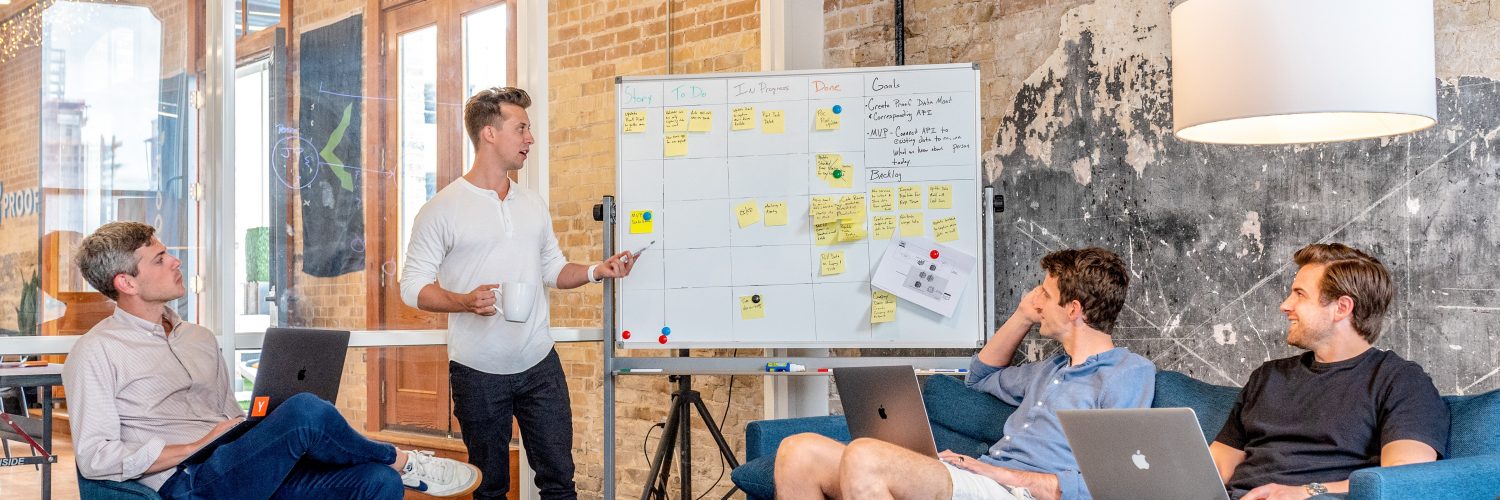Alice Maro and her husband had operated an AlphaGraphics location in the valley for nine years when they decided they wanted to turn their business into an independent company.
“Leaving a national franchise is kind of scary, to start up something new,” Maro said.
But Maro didn’t have to go through the process alone. Their new business, Graphic Ideals, received a variety of resources via the City of Phoenix’s Management Technical Assistance (MTA) program, including consultation services for how to rebrand their company and remodel their shop – all wholly paid for by the city and funded by federal grants.
“They will help you succeed as a business,” Maro said. “One of the folks that came to help us with our rebranding set up our business plan, and he went on to be my accountant full-time.”
Phoenix’s MTA Program is just one component of the city’s Small Business Enterprise (SBE) program, which is an interdepartmental program designed to connect Phoenix small business owners with a variety of resources, depending on their needs.
The program is designed primarily for business owners who are “economically disadvantaged,” according to Trevor Bui, Deputy Director of the City of Phoenix’s Equal Opportunity Department.
Business owners interested in joining the program must have a personal net worth below $1.32 million and undergo a formal certification process conducted by the Equal Opportunity Department, including a tax evaluation and a business visit.
But once a business owner is accepted to the SBE program, they then have access to what Bui described as “a smorgasbord of services” exclusive to the program.
One particular area of focus is the city’s Reserve Contract program, in which “selected goods and general services contracts are reserved for competition only among SBE firms,” according to the program’s website.
The philosophy, Bui says, is that getting small businesses involved in bidding on major contracts results in more money staying in Arizona, as opposed to focusing on getting more “bang for the buck” with larger producers.
“The mayor and council, they believe that when you pour money into our local businesses, the money stays local,” Bui said. “That helps with the vitality of our local economy.”
Another example of services available through Phoenix’s SBE program is access to exclusive networking events designed to get smaller, locally owned firms in front of prime contractors, to help open new avenues of business for them.
“One of the most challenging areas the city faces is when firms are already comfortable with their subcontractors or their suppliers, often times they won’t want to risk it and go to a new firm,” Bui said. “We believe that the best way to help small businesses get their foot in the door is to get them in front of the prime contractors.”
And because small businesses in the SBE program have already been certified by the city, prospective contractors can rest assured that the companies they’re speaking with are capable of quality.
“The message that we send to the prime contractor community is, give these firms a chance,” Bui said.
Maro said that Phoenix’s SBE program has been a huge resource for her business, Graphic Ideals. In addition to the services she received through the MTA program, the SBE program has resulted in a number of notable contracts for the company.
“Because of the certification, we started working with construction and transportation very heavily,” Maro said.
For example, when light rail was being constructed in the Valley in the mid 2000’s, Graphic Ideals was able to get a printing contract with one of the main contractors for the project, Parsons Brinckerhoff (now known as WSP USA.) That relationship lasted four or five years, Maro said, and led to relationships with other contractors. The company still works on light rail-related projects even today.
Graphic Ideals has also secured other notable contracts, including printing the menus for restaurants in Terminal 3 at Sky Harbor International Airport.
Maro said even her family has been surprised at how much access her company has to the city.
“My father-in-law had a small printing business,” she said. “And when I told him that I was presenting to the mayor and to the city council about what we do, he just started laughing and said, ‘how did you ever get that appointment?’”
Bui says Phoenix’s SBE program has been such a major success that other cities across the country are trying to replicate it.
“Municipalities and government entities all over the country call to ask about our program,” he said. “It’s the little things that help those small businesses.”
















Add comment